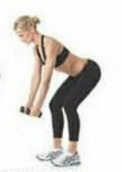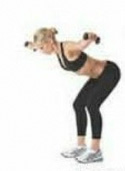|
Deep Sleep
1. Ministry of Health, Labor and Welfare
guidelines:
The above table is a graph of the reasons for sleep deprivation created
in 2000 by the Ministry of Health, Labor and Welfare in order to promote
the health of the public. Seven articles are shown as a guideline to sleep
well.
1) Lively healthy life leads to deep sleep (regular exercise habits, breakfast
is important, dinner should be light)
2) Sleep is a barometer for each person to
feel energetic and comfortable during the day.
3) Comfortable sleep is created by oneself
(Caffeine intake after dinner makes it difficult to fall asleep, and nightcap
makes sleep quality worse)
S) Each ones relaxation method before going to bed is desirable, the enthusiasm
to sleep rather makes the head clear.
5) When you wake up, take in sunlight and
switch on your body clock (wake up at the same time every day)
6) Overcome afternoon sleepiness (refresh
with a short nap, 20-30 minutes before 3pm if you take a nap)
7) Consult a specialist for sleep disorders
2. Deep Sleep:
1) In order to get a good night's sleep, it is best to exercise well. When
running, the load to the body is said to be two to three times the body
weight. It is recommended to walk 8,000 to 10,000 steps, but simply walking
is not enough to strengthen the muscles and get deep sleep. It is necessary
to spread the legs wide and climb up two steps at one time, use ankle weight
is another way to increase load to the body.
2) Exercise with dumbbells to burn the large brown cells in your back and
get a deep sleep. (Spread your legs slightly apart, stand straight, bend
your upper body to about 90 degrees, and slowly lower both hands holding
dumbbells. Lift the dumbbells until it goes to parallel to the floor.)
 |
 |
3) If you take 1000 mg of arginine capsules a day, melatonin will be released
during sleep and the sleep will become deeper.
4) Tryptophan, an essential amino acid,
changes into serotonin in the brain during the day and into melatonin at night,
so tryptophan intake is important for deep sleep (per 100 grams of tryptophan
content: skipjack tuna 310mg, pork loin 280mg, chicken breast 270mg, lean tuna
270mg, salmon 250mg, buckwheat 170mg, pasta 140mg, firm tofu 98mg, brown rice
94mg, white rice 82mg, soy milk 53mg, according to Yamanashi Prefecture KOSEIREN)
|